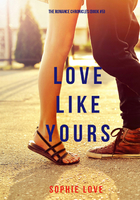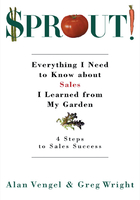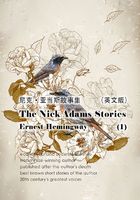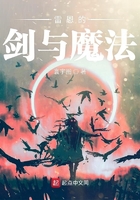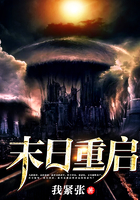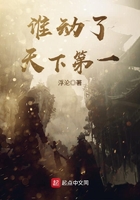Grocery stores are where we purchase most of our food—$650 billion annually at thirty-eight thousand of them in America, $1 trillion if you count all retail food sales[1]—yet most people know almost nothing about how they operate or where the food they sell comes from. We do, however, count on their always being here. While food issues drive some of the most compelling stories in the news (after national and international crises)—everything from the gluten-free fad, the pros and cons of genetically modified foods, questions about food's possible impact on increasing gastrointestinal illnesses, food fanaticism, food recalls, anxiety about food expiration dates, eating disorders, the paleo diet, our $1 billion-per-day health care crisis—we remain more confused than ever by conflicting information we receive about the food we eat.
Some of this confusion can be explored and clarified by looking inside a grocery store.
The American supermarket is like no other retail store, and we use it like no other retail store, venturing out to buy groceries on average twice a week, every week, all year long, to feed ourselves. A family's biggest expense, after housing and transportation, is groceries (about 10 percent of its income). A small portion of the population grows some of their own food, but almost no one, or no family, fails to go to a grocery store each week. It's the only store most Americans have to spend money in. Those who can't get to one tend to be sicker than those who can, according to researchers who study urban and rural food deserts, places where there are no convenient grocery stores.
Grocery stores are more than just places to buy food. They are in a broader sense a reflection of our culture. During the Cold War, for instance, supermarkets were a powerful symbol. "With their dizzying array of processed foods, [supermarkets] came to be regarded as quintessential symbols of the triumph of American capitalism," writes Harvey Levenstein in Paradox of Plenty: A Social History of Eating in Modern America. During the impromptu 1959 Kitchen Debate in Moscow, then vice president Richard Nixon pointed to the astonishing variety of goods available to Americans as evidence of capitalism's superiority, pooh-poohed by Soviet premier Nikita Khrushchev. The next year, however, when Khrushchev and his pals visited a San Francisco supermarket, "the expression on their faces was something to behold," writes Levenstein, quoting Henry Cabot Lodge, one of the hosts.
Because they are a reflection, even symbol, of our culture, and thus a gauge of who we are, supermarkets illuminate what we care about, what we fear, what we desire. They offer a view of our demographic makeup, including how much money we have and how big the country is, not to mention how much it is changing. The grocery store describes the effects of global warming on farms from Washington down through California, the state of our oceans, and the health of our land. It is a showcase for the latest food production innovations, which is critical given the world's escalating population. And the grocery store is at the center of broader issues of how the food we eat affects our bodies and our body politic.
All these issues, and countless others, come into focus when viewed through the American supermarket, food's last stop before it enters our homes. Though we aren't often reflective or thoughtful about grocery stores, they are in truth a barometer of our country's collective state of mind. Yet relatively little has been written about them, how they work, and what they mean.
Why this lack of attention? Perhaps because on the surface, grocery stores seem banal. Perhaps because they are so ubiquitous. I don't know. There's a scene in the extraordinary film The Hurt Locker, in which an American serviceman, a bomb diffuser, is home after a tour in Afghanistan, and is grocery shopping with his wife and young child. The fluorescent lighting in the supermarket aisles makes even the brightly colored boxes and packaging seem flat; we sense that the character, played by Jeremy Renner, will not be able to exist in this colorful but dead consumer landscape—a landscape embodied by the grocery store. Sure enough, he is soon back in Afghanistan, suiting up to dismantle a car bomb.
We tend to use grocery stores without thinking about them, or if we do think about them, it's with mild annoyance, the thought of shopping itself a chore. What we rarely reflect on is what a luxury it is to be able to buy an extraordinary variety and quantity of food whenever we want every day of the year.
I'm often asked about the reason for our country's growing obsession with food—the emergence of "the foodie," the 1993 creation of a twenty-four-hour TV channel devoted to food, chefs becoming celebrities, new cooking appliance fetishes, and ever-fancier kitchens that see less and less actual cooking. My response is that when something you need to survive starts making you confused and sick, you become obsessive about it. We don't tend to think much about air, but if we suddenly didn't have any, it would be pretty much all we'd be able to think about. The same might be said about grocery stores—if they suddenly vanished, if our only option for sustenance was the Cheesecake Factory or a CVS pharmacy, we'd think about them a lot.
Part of the reason we don't think about them is that food, on a daily basis, isn't a concern in this country. We have a lot of food—more than what we need, in fact. It's available every hour of every day. Just walk into any supermarket in America, an industry that responds aggressively to what America wants to buy, and you enter a landscape composed of tens of thousands of square feet of inexpensive food, food that's critical first to our comfort and ultimately to our health and happiness. And yet there's something wrong here, and we know it, though we can't we quite get at what it is.
Here's what this book is not: It is not a history of grocery stores, though their transformation from trading posts to country stores to stores selling packaged food to everything-under-one-roof supermarkets is part of the story. It's not an aisle-by-aisle tour of each of the ten main departments of a grocery store (produce, grocery, seafood, meat, floral, bakery, frozen/dairy, deli, prepared foods, wine and beer). Nor do I report on the industrial system we've developed to feed our hunger for beef and pork, the methods and impact of overfishing our oceans, or even the ways the major food manufacturing companies (Kraft, Kellogg, PepsiCo, Nestlé, etc.) create, market, and profit from the food that seems to be making us sick. And this is not a nutritional guide to what is on the shelves and how it affects our health, though food choices and health are central to my story. These issues have been widely covered in other books and in the media.[2]
This book is instead what I would call a reported reflection on the grocery store in America, and an expression of my own love, anger, opinions, and concerns over what is in them, how it got there, and what it all means. I've been writing about food and cooking since 1996, when I snuck into the Culinary Institute of America to write about what the most prominent cooking school said you had to know in order to be a chef. In the intervening two decades, food issues have become some of the most pressing and confusing of our time. Because these issues are so numerous and disparate, I've had to be selective about what I choose to write about, and about these subjects I do not attempt to conceal my opinions.
I cover the food that interests me, the people who are most outspoken in the grocery business, and follow the stories that matter to me, whether it's on a vast ranch in a national park in Idaho or on a tour of the grocery store with my physician. In researching this book, I visited farms, stores, and produce auctions; I joined grocers at food shows and interviewed the cheese makers they buy from; I toured a fish auction in Honolulu, one of the major fish auctions in the country; I bagged groceries, got to know the people who ran the stores and who worked in them, and generally hung out in the supermarket. In short, as a lover of food, a cook, and a person who cares about the future of food in America, I wrote a book that, using a small family grocery chain in my hometown of Cleveland as my inroad, is the book that I wanted most to read. Ultimately it is a story that's never been written: an appreciation of, and wonder at, the American grocery store and the complex and fascinating business of retailing food to a country of 320 million people.
But it is also, as you'll see, a deeply personal subject, and I try to tell that story as well. Happily, I grew up in a household that loved food and cooking, the place where, surely, my love of food and my fascination with grocery stores began. Having written about the food world for twenty years now, I've come to care about food more than I ever thought possible—about how we grow it, raise it, catch it, kill it, package it, distribute it, buy it, cook it, and dispose of what we don't want. Our food (and the cooking of it, or lack thereof) is more important than most people realize, and we fail to understand this at our peril.

